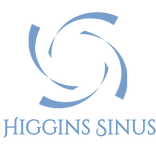Relieving Symptoms of the Common Cold, Allergies, and Sinusitis

While prescription medications and antibiotics can be important in managing certain nose and sinus issues, many people underestimate the value of medications and herbal products available to everyone "over-the counter" (OTC) at the local pharmacy. Probably the most important and safe therapy is salt water (saline) spray and irrigation. OTC medications for cold and allergies are typically formulated with a combination of 1 to 5 categories of medications (see below). It can be quite intimidating to choose between the hundreds of options, so hopefully this guide can help with that daunting task. Also listed are herbal therapies. (Please remember to use these medications only as directed. Although they are "over-the-counter", they can still cause severe, life-threatening effects if abused or overused.)
Saline (Salt Water)
- Nasal Saline Spray
The majority of the body is made up of salt water. Saline spray can be used by anyone to moisten the nasal passages and help break up thick secretions. It is also safe in kids of all ages, and you can use it as much as you like. - Nasal Saline Irrigations
Nasal Irrigations or rinses are used to manually clean out the nose of secretions. This therapy is generally safe and can be performed several times a day. See this link for a demonstration.
Over-The-Counter Medications
- Nasal Decongestants (Oral or Nasal Spray)
Take for the stuffy or blocked nose. The "D" in cold formulations. (Note: Oral decongestants can increase the blood pressure and nasal spray decongestants can cause rebound nasal obstruction if used too much.) - Antihistamines
Take for sneezing, itchy/watery nose, itchy/watery eyes. "Diphenhydramine" is a sedating antihistamine and is the most common "sleep aid" formulation. There are other nonsedating antihistamines available as well. - Mucus Reducers
Take to reduce the viscosity (thickness) of nasal secretions. Called "guaifenesin". Often combined with "DM" (see below). - Cough Suppressants
Take for persistent cough. The "DM" in cold formulations or called "dextromethorphan." - Pain-Reliever/Fever-Reducer
Many formulations include "acetaminophen", which reduces both pain and fever. Nonsteroidal anti-inflammatory agents (NSAIDs), such as "ibuprofen", reduce pain and inflammation but do not work as well for fever. - Nasal Steroid Sprays
(Flonase and Nasocort) Reduces inflammation locally in the nose. Great for seasonal allergies and even reducing the time of the Common Cold. Does not work as quickly as other medications. May take up to 6 weeks for its maximum effect, but the wait is certainly worth it!
Herbs and Vitamins
There is some evidence that these herbs and vitamins may alleviate some cold- and allergy-related symptoms.
- Echinacea
- Zinc (oral, NOT nasal spray)
- Vitamin C
* Note: The information contained in these pages is for educational purposes only. It should not be construed as individualized diagnostic and treatment advice.





